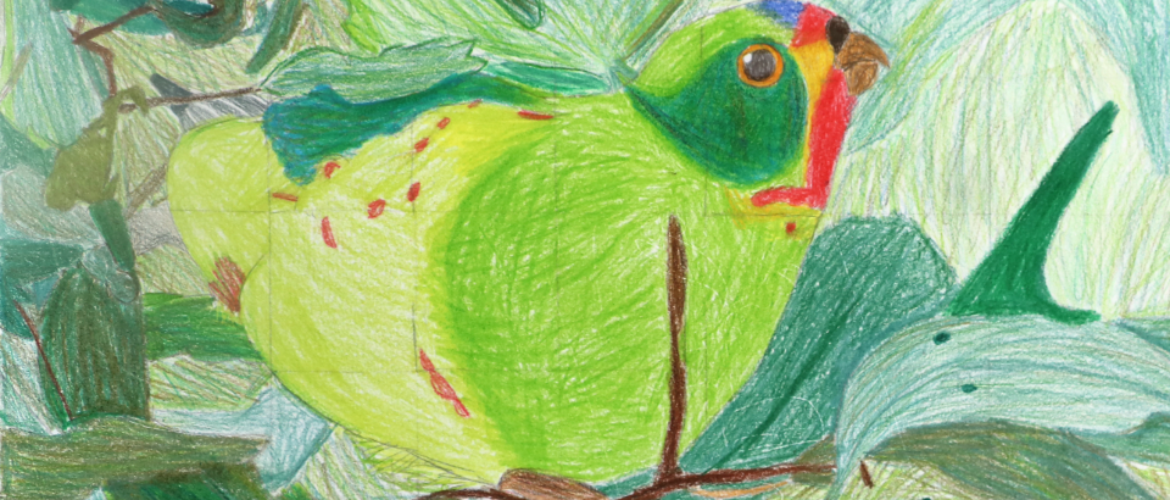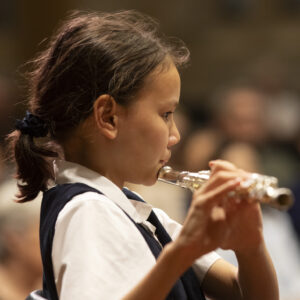Religious Education
Throughout this term in Religious Education, Years 8 and 10 have both been learning about something that in Christianity we consider to be foundational to our worldview and way of interacting with the world. This principle teaching guides and informs so much of what underpins Christianity, and it is something that here at SCEGGS we deeply value and care about. This principle is human dignity.
Through the unit of study “Jesus’ radical teachings and actions”, Year 8 students in their examination wrote about how Jesus taught us the importance of an inclusive and nurturing community, where people are cared for, because we take the time to notice and welcome all into our society, with love. The comprehension passage ‘More than an OpShop’, an article about Anglicare’s Hornsby OpShop, contained beautiful stories about two women, Olga and Emma, who both tried to live out the love of God through their actions. The student’s examination responses were sincere, well thought-out and insightful as they examined how Jesus’ teaching of love, justice and compassion for all can be lived out in our daily lives, and as a result, change the way we interact, to bring about a world that values all.
Similarly, Year 10 have also been considering how it is we help in creating a more just and loving world. Throughout this term, they have been considering what human dignity is and through a case study of the Truman Show, explored ethical questions regarding the ways that we deny or limit people’s self-expression and fundamental human rights. In their recent Assessment Task, amongst other questions, they were asked to reflect on how principles of justice and equity are expressed in the teaching of the Kingdom of God and whose responsibility it is to ensure the rights of all are upheld in society.
Attached are a few student responses to these very important points of reflection and consideration. The students have embraced these tasks with such deep interest and reflection, making it very difficult to choose only a handful of responses to print here.
Dynielle Whitney
Head of Religious Education
Extracts from Students
The Christian worldview enables us to not only participate in actions that benefit ourselves, but also actions that benefit others, and the wider community. It’s a way of looking at life through the lense of Jesus and God’s teachings, a way to harness the good in life and live your actions with the hallowing sense of good. Jesus not only came into the world at a time that needed him, but also at a time where he knew stories and teachings of his actions would continue to benefit society for centuries to come. People needed a purpose in life and guidance, and they also craved love. Jesus gave them all of these things. ….From Emma’s (from the article) point of view, Jesus’ purpose is to serve others, so that is her purpose in life too. Jesus’ teachings offer many positive messages about the Kingdom of God and the values people can partake in to make their lives richer with kindness….Jesus’ radical teachings explores the progressive and compassionate nature of God as instead of following the oppressive societal norms of the time (like stoning a woman to death for committing adultery) Jesus defines these in a way that inspires others and in a way that teaches us how to treat everyone equally and with respect, even those considered different. An instance of this is the story of the final dinner Jesus had when he takes the role of the servant and begins washing everyone’s feet, even Simon’s who has sinned against Jesus, and Jesus knows this. Jesus washing everyone’s feet teaches us about the inclusive nature of God and to treat everyone the same. It also teaches us that we are not “above” anyone, and to express this, especially as a way of expressing compassion.
Josephine Hatherall, Year 8 Examination
Dignity is the concept of seeing a person beyond their usefulness. It involves treating all people with respect, love, justice, equality and allowing freedom. Genesis 1:27 states that all people both male and female are created in God’s image. From a Christian perspective God is seen to represent the value of dignity and the Genesis quote demonstrates that any person, no matter their gender or usefulness is sacred and displays God’s image, meaning they all show dignity.
Hannah Doolan, Year 10 Assessment Task
Dignity is the idea that all humans have an innate sense of respect that stems from being made in the image of God. Since everyone is made in the image of God, all humans deserve justice, peace, respect and equality…The Universal Declaration of Human Rights states “All human beings are born free and equal”, affirming that all people deserve dignity. From a Christian perspective, this fundamental dignity stems from being made in the image of God. In Genesis the Bible repeatedly refers to the inherent link between dignity and peace, for example saying “Let there be peace on Earth”. This is a direct result of being created by God, instilling a sense of basic human decency that all humans can recognise in each other, fundamentally as dignity. Ultimately, all people are made by God, and it is through His love and power, and through Jesus’ example, that people can recognise the basic shared dignity all humans hold, and the respect, justice and equality leading to peace that all humans deserve.
Natalie Assaad, Year 10 Assessment Task
































































































